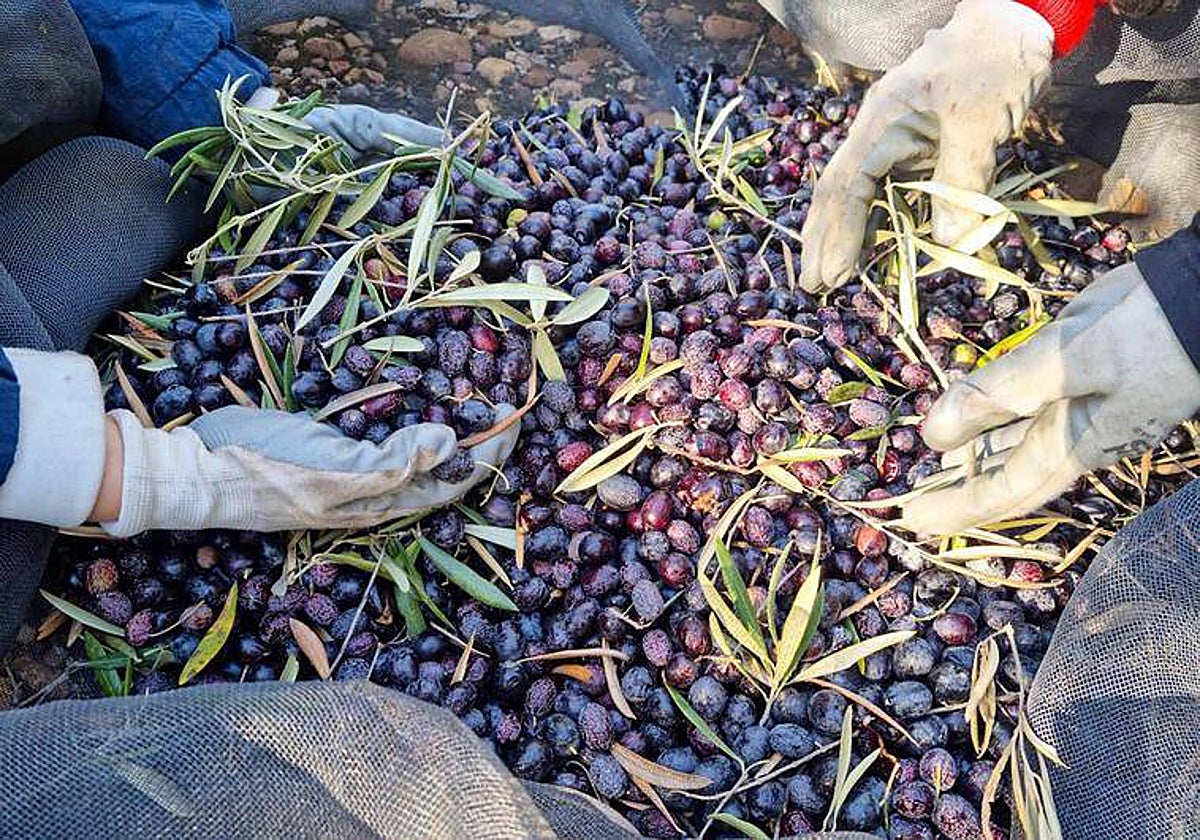Olive season in Malaga province on course to be worst this century
The ongoing drought has meant olive oil production so far in 2022-2023 is at 30,000 tonnes; 48 per cent less than this time last year
Drought is the countryside’s worst enemy and the consequences of the ongoing lack of rain is being felt by Malaga’s olive industry. The 2022-23 season, which started in November and continues until April, is already set to be the worst this century.
As the harvest enters its final stages, according to the latest data published by Spain's Ministry of Agriculture, Fisheries and Food up to February, the current harvest has produced 30,000 tonnes of oil in the province, 48 per cent down on the 2021-2022 season when 57,000 tonnes of oil were produced, a season already considered by the sector to be "very bad".
There are few olives still to be harvested, so there is little hope that the figure will improve. A drought crisis which has worsened in recent years means that the trees have increasingly smaller fruit. President of Asaja, Baldomero Bellido, explained to SUR, "The olive trees held out until September, but from then on the trees have started to suck moisture from the olives.” He went on to explain that the December rains were “insufficient to reverse a situation that was already expected to be very negative".
Less than predicted
The 30,000 tonnes are even fewer than the 40,000 tonnes estimated by the Junta de Andalucía, a forecast that has always been noted for being conservative, but which has fallen short of the current situation. The previous worst season this century was the 2002-2003 harvest when oil production only reached 36,000 tonnes in Malaga province. Until this year, it had been the only time when production fell below 40,000 tonnes. Production has exceeded the 50,000-tonne mark in the last three years.
Benito Avilés, president of the cooperative in Campillos said that there is "concern" in the sector. "It is the worst harvest in history, without a doubt. And that's not just here in Campillos. Talking to people in Archidona, the feeling and the reality are the same," he pointed out.
Avilés issued another warning related to the drought. Unless there is abundant rainfall in spring, the next harvest will be "catastrophic" he warned. "We have seen several very bad years in a row. No more rain and another summer like the one we had last year will be the last straw."
José Santaolalla, who has an olive grove in Alozaina, one of the areas with the longest olive-growing tradition in the province, said, "It has been the worst season I can remember. It has never been so bad. This year we have harvested 4,100 kilos. Last year there were 16,000. If we have a season like this again next year, it's going to be disastrous."
The outlook is pessimistic: spring forecasts show little hope of rain and temperatures are expected to remain high. The president of Dcoop, Antonio Luque, said last week that the drought problem must be a top priority for politicians. "The politician who solves this issue will be the most highly valued politician for the next 200 years," he said. Asked about this year's olive season, he also warned of an "absolute disaster".
Rising prices
The price of olive oil has risen sharply, along with other food products. It is currently 526 euros per 100 kilos. This is an increase of 59 per cent compared to last season and 95 per cent higher than two years ago.
On one hand producers' costs have shot up due to uncertainty in all aspects of the industry. On the other, the latest EU statistics published show a reduction in European production of 33.8 per cent in 2022 compared to 2021 due to climate conditions.
The final price paid by the client is also conditioned by the margins set by the large supermarkets; olive oil producers claim that the percentages have also increased.
"The price paid in the supermarket is not the same as the price paid in the cooperative," said Avilés, who also pointed out that the current season has yet to have an effect on price. "It will be three to four months before the current season is reflected."

